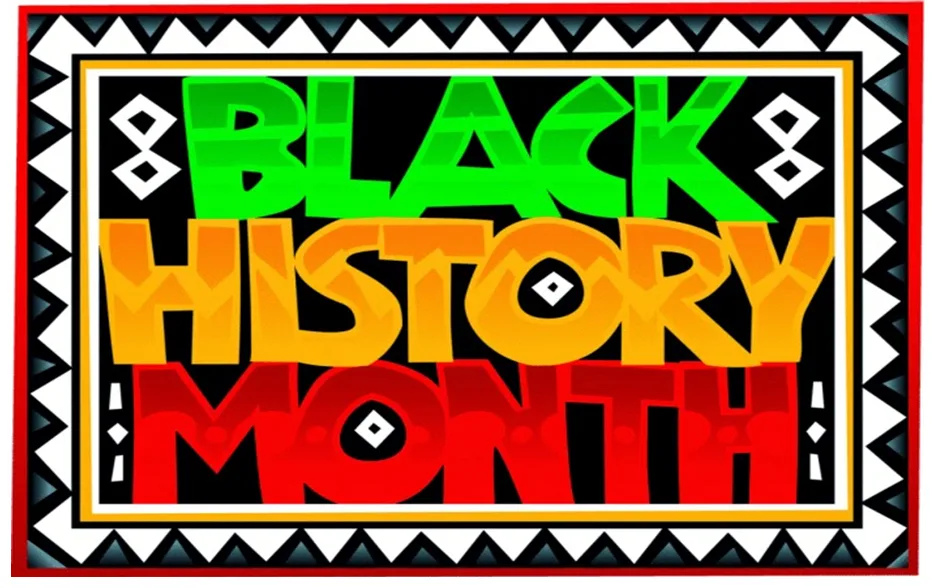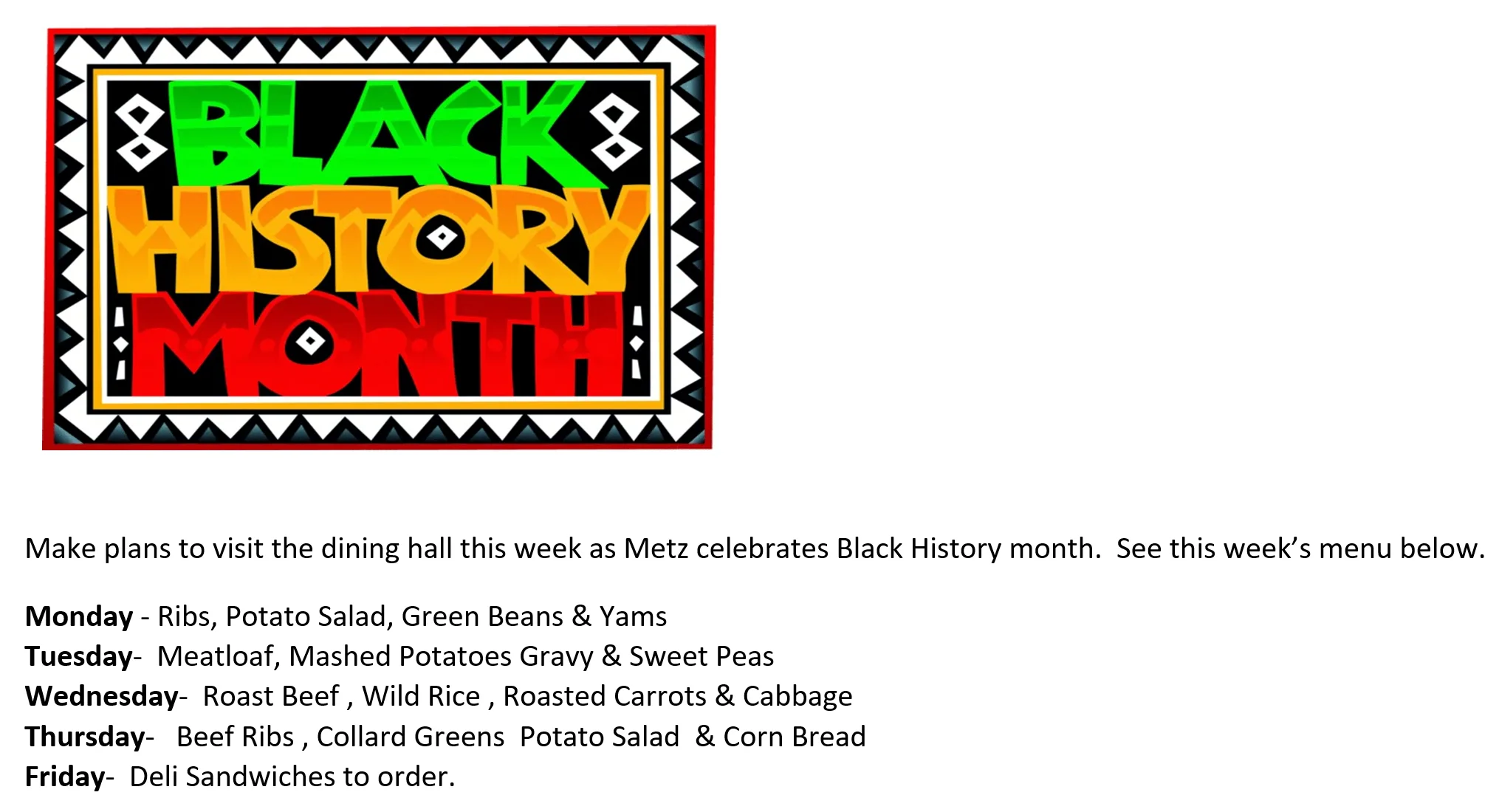
What’s On The Menu?
Who knew that deli sandwiches could generate so much controversy? I’m not talking about the regional hoagie v. sub v. grinder, or the ever present debate on mayo-mustard-olive oil. The controversy in question was not really about food at all, although a Black History Month menu from Dining Services triggered the difficult, fascinating, honest discussion of racial and ethnic cultural mis-appropriation, stereotypes, microaggressions and respect for those who work hard to nourish the rest of us. I put the controversy on the agenda for last week’s Campus Conversations and the discussion was honest, courageous, and, for some, vexing.
At a time when Black history is being eradicated by governors and state legislatures all over the country, we should work harder to get it right at Trinity. I wanted to have the discussion on Campus Conversations so that we could lift up our concerns, differences of opinion, and issues that sometime stay repressed when we have to be more open about them. We have an obligation to live our mission in social justice honestly and authentically, and when a concern arises about racial equity and justice, we need to address it.
Jumping to the end, what I heard loud and clear is that we should be more intentional, authentic and pro-active about providing a context for any and all activities we promote for Black History Month or any and all of the other “Month” observances — Women’s History, Hispanic Heritage, LGBTQ+, and others. Going forward, I would like to invite members of the campus community to engage in processes to plan the programs, menus, communications and all relevant dimensions of such observances.
Back to the beginning. While I don’t want to re-ignite the controversy, this image of the menu is important for the subsequent discussion:

While the Deli Sandwiches are clearly out of place — Director of Dining Services Gilles Syglowski later explained that the sandwiches are part of the regular weekly menu and probably should not have appeared on this “special” menu — the rest of the menu appeared as delicious and even ambitious. Chef Renee Fitzgerald created the menu based on her own experience with Southern and Black cuisine, and she is proud of her work. We are all very grateful to Chef Renee and her team in the kitchen for their hard work every single day!
As the conversation unfolded during Campus Conversations, it became clear that the controversy was not really about the food at all — students in particular commented about how much they enjoyed it — but rather, about how we tell the story, who has the right and responsibility to tell the story, what is the story we are trying to tell and what racial/ethnic/cultural symbols and experiences do we use to “celebrate” or observe a heritage that is rife with pain and suffering and pride and triumph.
The menu was not really the problem at all, but rather, we failed to tell the story about what the menu represented. We failed to be good teachers in a moment that cries out for courageous instruction. We did not educate our students and campus community about the importance and symbolism of food as a vital dimension of the Black community’s response to centuries of oppression. We missed a “teachable moment” but created another one that is even more valuable in the long run.
Annette Coram, executive director of Conference Services, sent out the menu on behalf of Metz Dining Services and she was stunned by some of the criticism that ensued. Annette gave a statement during Campus Conversations that was excellent —- the missing context for the menu! With her permission, I am sharing her statement here because it is a powerful explanation of the menu, and a great example of how we should be more intentional and authentic as we plan our future heritage observances:
Statement of Annette Coram on the Black History Month Menu
Good afternoon- I am Annette Coram, author of said email about the Black History menu offered by Metz dining services.
I would be remiss if I didn’t add my comments to this upsetting and troubling discussion.
I have to start out by saying I am both disappointed and confused at the response to the email about a Black History Month Menu.
For those unaware, the menu shared with all Trinity was curated by our dining hall chef, Renee Fitzgerald—an African American native from North Carolina who was raised in Washington, DC. The menu presented featured food offerings such as Ribs, Potato Salad, Green Beans & Yams, Meatloaf, Mashed Potatoes Gravy & Sweet Peas, Roast Beef, Wild Rice, Roasted Carrots & Cabbage Beef Ribs, Collard Greens Potato Salad & Corn Bread—types of food that would be termed traditional Soul food.
Now, I know we have many educated people on this call so I will not delve into how one creates and illustrates culture but let it suffice to say culture is universally experienced through a people’s customs, clothing, housing, —and food.
Food is a HUGE part of black culture because it demonstrates not only our experience in this country but illustrates our ingenuity in creating wonderful cuisine often from the scraps the colonizers left for trash.
And because of this, soul food is ensconced in culture for African Americans. We—residents of the DMV–see this most vividly displayed at the National Museum for African American History and Culture. This month the museum is celebrating BH month with Michelin reviewed chefs bringing their talents to the museum. In speaking about the 1st visiting chef of the month, the website says – in the sweet home café, Enjoy delicious dishes such as BBQ Ribs with Rhubarb Chow Chow, Grandpop’s Meatloaf Sandwich with Caramelized Onion Relish, and Crispy Cornmeal Catfish with Hot Pepper Lemon Butter—again soul food.
The Metz menu presented was not listed as a culmination of all of what African Americans have accomplished. This menu was curated with the intention to highlight and celebrate a community and culture that has survived these types of proposed erasure for over 400 years.
To fully understand how food has impacted the African American community in this county I encourage all on this call to watch the Peabody and NAACP Image award winning Netfix documentary, “High on the Hog”—How African American cuisine transformed America. It is a fascinating look at the important bond between food and culture in our community. I don’t see anyone picketing or protesting this film series. On the contrary, it is being hailed as groundbreaking and true to our culture.
Black food is American food. Is it a part of our history, yes. Is it food that we have created, curated, and shared with the world, yes. Soul food is a part of who we are as a people, absolutely yes! By the way, it is called soul food because it nourishes the soul as well as the body.
So in conclusion, I ask that we take a moment to understand why we are in the middle of this uncomfortable conversation at this point in time. Is it because we are ashamed of sharing our culture? Have we embraced the privilege and power of our accomplishments so much that we have forgotten from wince we came?
The topic of this conversation should not be about what is or is not Black History Month soul food. The conversation should be why does soul food make some people uncomfortable? What are they ashamed of?
Thank you.